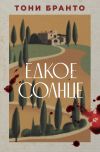Текст книги "Странник по звездам / The Star-Rover"

Автор книги: Джек Лондон
Жанр: Иностранные языки, Наука и Образование
Возрастные ограничения: +12
сообщить о неприемлемом содержимом
Текущая страница: 2 (всего у книги 10 страниц) [доступный отрывок для чтения: 3 страниц]
Chapter VII
I knew that within myself were memories of other lives, yet I was unable to use them. My bright bit of straw did not allow me to achieve any definiteness of previous personality. I became convinced, through the failure of my experiments, that only through death could I clearly resurrect the memories of my previous selves. But I, Darrell Standing, was so strongly disinclined to die that I refused to let Warden Atherton and Captain Jamie kill me. I was always urged to live, that is why I am still here, eating and sleeping, thinking and dreaming, writing this narrative and awaiting the rope that will finish my existence.
And then came death in life. Ed Morrell taught it me, as you will see. Warden Atherton and Captain Jamie came to me in my dark cell, and they told me plainly that they would jacket me to death. And they assured me that they would do it officially. My death would appear on the prison register as due to natural causes.
Oh, please believe me when I tell you that men are killed in prisons today as they have always been killed since the first prisons were built by men.
I well knew the terror, the agony, and the danger of the jacket. I have seen men, strong men, men so strong that their physical stamina resisted all attacks of prison tuberculosis, after a prolonged bout with the jacket, their resistance broken down, fade away, and die of tuberculosis within six months.
I had had my own experiences. At the present moment half a thousand scars mark my body. They go to the scaffold with me.
Perhaps, dear citizen, you are unacquainted with the jacket. Let me describe, it, so that you will understand the method by which I achieved death in life, became a temporary master of time and space, and vaulted the prison walls to rove among the stars.
Imagine a piece of stout canvas, some four and one-half feet in length, with large and heavy brass eyelets running down both edges. The width of this canvas is never the full girth of the human body it is to surround. The width is also irregular—broadest at the shoulders, next broadest at the hips, and narrowest at the waist.
The jacket is spread on the floor. The man is told to lie face-downward on the flat canvas. If he refuses, he is beaten. After that he lays himself down with a will.
So, the man lies face-downward. The edges of the jacket are brought as nearly together as possible along the centre of the man’s back. Then a rope is run through the eyelets, and on the principle of a shoe-lacing the man is laced in the canvas. Only he is laced more severely than any person ever laces his shoe. In order to insure the severity of the lacing, the guards press with their feet into the man’s back as they draw the lacing tight.
Try to imagine your whole body laced very tightly, and the squeeze is on your entire trunk, compressing your heart, your lungs, and all the rest of your vital and essential organs.
I remember the first time they gave me the jacket down in the dungeons. It was at the beginning of my incorrigibility, shortly after my entrance to prison, when I was weaving my loom-task of a hundred yards a day in the jute-mill and finishing two hours ahead of the average day. I was sent to the jacket that first time, according to the prison books, because of “skips” and “breaks” in the cloth, in short, because my work was defective. Of course this was ridiculous. In truth, I was sent to the jacket because I, a new convict, told the stupid head weaver a few things he did not know about his business. And my punishment was twenty-four hours in the jacket.
They took me down into the dungeons. I was ordered to lie face-downward on the canvas spread flat upon the floor. I refused. They began to beat me. In the end I lay down. And they laced me extra tight. Then they rolled me over like a log upon my back.
When they closed my door, with clang and clash, and left me in the utter dark, it was eleven o’clock in the morning. My heart began to thump and my lungs seemed unable to draw sufficient air for my blood. This sense of suffocation was terrorizing.
I began to cry out, to yell, to scream, to howl, in a very madness of dying. The trouble was the pain that had arisen in my heart. It was a sharp, definite pain, similar to that of pleurisy.
To die is not a difficult thing, but to die in such slow and horrible fashion was maddening. I experienced ecstasies of fear, and yelled and howled until I realized that such vocal exercise merely consumed much of the little air in my lungs.
I lay quiet for a long time—an eternity it seemed then, though now I am confident that it could have been no longer than a quarter of an hour. Again I lost control of myself and set up a mad howling for help.
In the midst of this I heard a voice from the next dungeon.
“Shut up[25]25
shut up – заткнись
[Закрыть],” it shouted. “Shut up. You make me tired.”
“I’m dying,” I cried out.
“Forget it,” was the reply.
“But I am dying,” I insisted.
“Then why worry?” came the voice. “Go ahead, but don’t make so much noise about it. You’re interrupting my beauty sleep.”
I recovered self-control and was only groaning.
“How am I going to get some sleep?” my neighbour complained. “I’m not happier than you. My jacket’s just as tight as yours, and I want to sleep and forget it.”
“How long have you been in?” I asked, thinking him a new-comer compared to the centuries I had already suffered.
“Since day before yesterday,” was his answer.
“I mean in the jacket,” I amended.
“Since day before yesterday, brother.”
“My God!” I screamed.
“Yes, brother, fifty straight hours, and I don’t complain about it. They cinched me with their feet in my back. I am some tight, believe me. You haven’t been in an hour yet.”
“I’ve been in hours and hours,” I protested.
“Brother, you may think so, but it’s not true. I heard them lacing you.”
This was incredible. Already, in less than an hour, I had died a thousand deaths. And yet this neighbour, balanced and equable and calm-voiced had been in the jacket fifty hours!
“How much longer are they going to keep you in?” I asked.
“The Lord only knows. Captain Jamie won’t let me out until I’m about to die. Now, brother, I’m going to give you the tip. The only way is to forget it. Just remember every girl you ever knew.”
That man was a robber from Philadelphia. I lived through my twenty-four hours, and I have never been the same man since. Oh, I don’t mean physically, although next morning, when they unlaced me, I was semi-paralyzed. I was a changed man mentally, morally. The brute physical torture was humiliation and affront to my spirit and to my sense of justice. My God—when I think of the things men have done to me! Twenty-four hours in the jacket!
I write these lines today in 1913, and today men are lying in the jacket in the dungeons of San Quentin. I shall never forget my friend from Philadelphia. He had then been seventy-four hours in the jacket.
“Well, brother, you’re still alive,” he called to me, as I was dragged from my cell into the corridor of dungeons.
“Shut up, you,” the sergeant snarled at him.
“Forget it,” was the retort.
“I’ll get you[26]26
I’ll get you – я до тебя доберусь
[Закрыть],” the sergeant threatened.
“Think so?” the robber queried sweetly. “Why, you couldn’t get anything. You couldn’t get a free lunch, if it wasn’t your brother’s help.”
It was admirable—the spirit of man rising above the hurt.
“Well, so long, brother,” he told me. “So long. Be good, and love the Warden.”
Chapter VIII
In solitary, Warden Atherton and Captain Jamie began to ask me. Warden Atherton said to me:
“Standing, we know that the prisoners hide dynamite somewhere. Tell me everything that you know about it, or I’ll kill you in the jacket. You’ve got your choice—dynamite or a coffin.”
“Then I guess it is the coffin,” I answered, “because I don’t know of any dynamite.”
This irritated the Warden. “Lie down,” he commanded.
I obeyed. They laced me tightly, and gave me a hundred hours. Once each twenty-four hours they gave me some water. I had no desire for food, nor was food offered me. Toward the end of the hundred hours the prison doctor examined my physical condition several times.
But I got used to the jacket during my days. Naturally, it weakened me, took the life out of me; but I had learned muscular tricks for stealing a little space while they were lacing me. At the end of the first hundred hours’ bout I was worn and tired, but that was all. Then they gave one hundred and fifty hours. Much of this time I was physically numb and mentally delirious. Also, by an effort of will, I managed to sleep away long hours.
Then I was given irregular intervals of jacket and recuperation. I never knew when I was to go into the jacket.
And ever the eternal question was propounded to me: Where was the dynamite? Sometimes Warden Atherton was furious with me.
“These lean college guys would fool the devil,” Warden grumbled. “Standing, you hear me. I’m a man of my word. You’ve heard me say dynamite or a coffin. Well, take your choice.”
“Surely you don’t think I enjoy it?” I gasped. “There is nothing to confess. I don’t know about any dynamite.”
One compensation I learned. As one grows weaker one suffers less. The man already well weakened grows weaker more slowly. Unusually strong men suffer more severely from ordinary sicknesses than do women or invalids.
Morrell and Oppenheimer were sorry for me. Oppenheimer told me he had gone through it, and worse, and still lived.
“Don’t let them kill you,” he spelled with his knuckles. “Don’t let them kill you, for that would suit them. And don’t tell them anything.”
“But I don’t know anything,” I answered. “I don’t know anything about the damned dynamite.”
“That’s right,” Oppenheimer praised. “He’s the man, isn’t he, Ed?”
Jake Oppenheimer could only admire me for my fortitude.
During this first period of the jacket-inquisition I managed to sleep. My dreams were remarkable. Of course they were vivid and real, as most dreams are. What made them remarkable was their coherence and continuity. Often I was reading aloud to scientists carefully prepared papers on my researches. When I awakened my voice was still ringing in my ears.
Then there was a great farm, extending north and south for hundreds of miles, with a climate and flora and fauna largely resembling those of California. Not once, nor twice, but thousands of different times I journeyed through this dream-region.
In my dreams, I often got off the little train where the straggly village stood beside the big dry creek, and drove hour by hour past meadows. I watched my men engaged in the harvest, while beyond my goats were walking in the fields.
But these were dreams born by my deductive subconscious mind. Quite unlike them, as you will see, were my other adventures when I passed through the gates of the living death and relived the reality of the other lives.
In the long hours of waking in the jacket I was thinking about Cecil Winwood, the poet-forger who had put all this torment on me, and who was even then at liberty out in the free world again. No; I did not hate him. This word is too weak. There is no word in the language strong enough to describe my feelings. I shall not tell you of the hours I devoted to plans of torture on him, nor of the diabolical means and devices of torture that I invented for him. Just one example. There was an ancient trick whereby an iron basin, containing a rat, was fastened to a man’s body. The only way out for the rat is through the man himself. Many of my pain-maddening waking hours were devoted to dreams of vengeance on Cecil Winwood.
Chapter IX
One thing of great value I learned is the mastery of the body by the mind. I learned to suffer passively. Oh, it is not easy! And it enabled me easily to practise the secret Ed Morrell told to me.
I had just been released from one hundred hours, and I was weaker than I had ever been before. So weak was I that though my whole body was one mass of bruise and misery, nevertheless I scarcely was aware that I had a body.
“Don’t let them kill you,” Ed Morrell advised. “There is a way. I learned it myself, down in the dungeons. You must be very weak first, before you try it. If you try it when you are strong, you will lose. I made the mistake of telling Jake the trick when he was strong. He thinks I am kidding him. Is that right, Jake?”
And from cell thirteen Jake rapped back, “Don’t listen to it, Darrell. It’s nonsense.”
“Go on and tell me,” I rapped to Morrell.
“That is why I waited for you to get real weak,” he continued. “Now you need it, and I am going to tell you. It’s up to you[27]27
It’s up to you. – Дело твоё.
[Закрыть]. If you have the will you can do it. I’ve done it three times, and I know.”
“Well, what is it?” I rapped eagerly.
“The trick is to die in the jacket, to will yourself to die. I know you don’t understand me yet, but wait. You know how you get numb[28]28
to get numb – неметь (о конечностях)
[Закрыть] in the jacket—how your arm or your leg goes to sleep. But don’t wait for your legs or anything to go to sleep. You lie on your back as comfortable as you can get, and you begin to use your will.
“And this is the idea you must think to yourself, and that you must believe all the time you’re thinking it. If you don’t believe, then there’s nothing to it. The thing you must think and believe is that your body is one thing and your spirit is another thing. You are you, and your body is something else. You’re the boss. You don’t need any body. And thinking and believing all this you proceed to prove it by using your will. You make your body die.
“You begin with the toes, one at a time. You make your toes die. You will them to die. And if you’ve got the belief and the will your toes will die. That is the big job—to start the dying. Once you’ve got the first toe dead, the rest is easy. Then you put all your will into making the rest of the body die. I tell you, Darrell, I know. I’ve done it three times.
“By-and-by your legs are dead to the knees, and then to the thighs, and you are just the same as you always were.”
“And then what happens?” I queried.
“Well, when your body is all dead, you just leave your body. And when you leave your body you leave the cell. Stone walls and iron doors are to hold bodies in. They can’t hold the spirit in. You see, you are spirit outside of your body. You can look at your body from outside of it. I tell you I know because I have done it three times—looked at my body lying there with me outside of it.”
“Ha! ha! ha!” Jake Oppenheimer rapped his laughter.
“You see, that’s Jake’s trouble,” Morrell went on. “He can’t believe. That one time he tried it he was too strong and failed. And now he thinks I am kidding.”
“When you die you are dead, and dead men stay dead,” Oppenheimer retorted.
“I tell you I’ve been dead three times,” Morrell argued.
“And lived to tell us about it,” Oppenheimer jeered.
“But don’t forget one thing, Darrell,” Morrell rapped to me. “It is very risky. You have a feeling all the time that you are free. I can’t explain it, but I always had a feeling if I was away when they came and let my body out of the jacket that I couldn’t get back into my body again. I mean that my body would be dead. And I didn’t want it to be dead. I didn’t want to give Captain Jamie and the rest that satisfaction. But I tell you, Darrell, if you can make it you can laugh at the Warden. Once you make your body die that way it doesn’t matter whether they keep you in the jacket a month on end. You don’t suffer anymore, and your body doesn’t suffer. You know there are many people who have slept a whole year at a time. That will be with your body. It just stays there in the jacket, not hurting or anything, just waiting for you to come back. Try it.”
“And if he doesn’t come back?” Oppenheimer, asked.
“Then we will laugh at him, I guess, Jake,” Morrell answered. “Or, maybe, he will laugh at us: we are in this old dump when we could get away very easily.”
And here the conversation ended.
I lay long there in the silence, thinking about that Morrell’s proposition. Morrell’s method was so different from my method of self-hypnosis that I was interested in it. By my method, my consciousness went first of all. By his method, consciousness persisted last of all, and passed into stages so sublimated that it left the body, left the prison of San Quentin, and journeyed afar, and was still consciousness.
It was worth trying, anyway, I concluded. And, despite my sceptical attitude, I believed. I had no doubt I could do what Morrell said he had done three times.
Chapter X
Next morning Warden Atherton came into my cell to kill me. Next morning Warden Atherton came into my cell to kill me. His face showed it. His actions proved it. With him were Captain Jamie, Doctor Jackson, Pie-Face Jones[29]29
Pie-Face Jones – Конопатый Джонс
[Закрыть], and Al Hutchins[30]30
Al Hutchins – Эл Хэтчинс
[Закрыть]. Al Hutchins was a prisoner, but he for four years he had been head trusty[31]31
head trusty – главный староста
[Закрыть] of San Quentin.
“Examine him,” Warden Atherton ordered Doctor Jackson. “Will he stand it?”
“Yes,” Doctor Jackson answered.
“How’s the heart?”
“Splendid.”
“You think he’ll stand ten days of it, Doc?”
“Sure.”
“I don’t believe it,” the Warden announced savagely. “But we’ll try it just the same. Lie down, Standing.”
I obeyed, stretching myself face-downward on the flat-spread jacket. The Warden seemed to debate with himself for a moment.
“Roll over,” he commanded.
I made several efforts, but was too weak to succeed, and could only sprawl and squirm in my helplessness.
So they rolled me over on my back, where I stared up into Warden Atherton’s face.
“Standing,” he said slowly, “I am sick and tired of your stubbornness. My patience is exhausted. Doctor Jackson says you are in condition to stand ten days in the jacket. But I am going to give you your last chance now. Tell me about the dynamite. The moment the dynamite is in my hands I’ll take you out of here. You will bathe and shave and get clean clothes. Then I’ll put you trusty in the library. I think you are the only person in San Quentin who knows where the dynamite is. And if you don’t tell me—”
He paused and shrugged his shoulders significantly.
“Well, if you don’t, you will put this jacket on. For ten days.”
The prospect was terrifying. I was very weak. Warden knew that it meant death in the jacket. And then I remembered Morrell’s trick. Now was the time to practise it. I smiled.
“These college guys are crazy,” Captain Jamie snorted.
“Warden,” I said quietly. “You can cinch me as tight as you please, but if I smile ten days from now will you give some tobacco to Morrell and Oppenheimer?”
“I guess you will die sooner, Standing.”
“That’s your opinion,” I said. “But since you are so sure of it, why don’t you accept my proposition?”
“All right, Standing,” snarled Warden. “Roll him over, boys, and cinch him till you hear his ribs crack. Hutchins, show him you know how to do it.”
And they rolled me over and laced me as I had never been laced before. The head trusty certainly demonstrated his ability. You see, Hutchins was a scoundrel. But I did not believe that I was going to die. I knew—I say I knew—that I was not going to die.
“That’s pretty tight,” Captain Jamie urged reluctantly.
“I tell you,” said Doctor Jackson, “nothing can hurt him. He ought to have been dead long ago.”
Warden Atherton, after a hard struggle, managed to insert his forefinger between the lacing and my back.
“Hutchins,” he said. “You know your job. Now roll him over and let’s look at him.”
They rolled me over on my back. I stared up at them. But I was well trained. I had behind me the thousands of hours in the jacket, and, plus that, I had faith in what Morrell had told me.
“Now, laugh, damn you, laugh,” said the Warden to me.
I was able to smile up into the Warden’s face.
Chapter XI
The door clanged. I managed to writhe myself across the floor until the edge of the sole of my right shoe touched the door. I could at least rap knuckle talk to Morrell.
But though I managed to call Morrell and tell him I intended trying the experiment, he was prevented by the guards from replying.
I remember my serenity of mind. The customary pain of the jacket was in my body, but my mind was so passive that I was no more aware of the pain than was I aware of the floor beneath me or the walls around me. Never was a man in better mental and spiritual condition for such an experiment. Of course, this was largely due to my extreme weakness. But there was more to it. I had neither doubts nor fears.
I began my concentration of will. My body was numbing and prickling through the loss of circulation. I directed my will to the little toe of my right foot, and I willed that toe to cease to be alive in my consciousness. I willed that toe to die. There was the hard struggle. Morrell had warned me that it would be so. But I knew that that toe would die, and I knew when it was dead. Joint by joint it had died under the compulsion of my will.
The rest was easy, but slow. Joint by joint, toe by toe, all the toes of both my feet ceased to be. And joint by joint, the process went on. My flesh below the ankles had ceased. All below my knees had ceased.
I knew that I was making my body die. I was devoted to that sole task. At the end of an hour my body was dead to the hips.
When I reached the level of my heart, the first blurring and dizzying of my consciousness occurred. I had shifted my concentration to my fingers. My brain cleared again, and the death of my arms to the shoulders was most rapidly accomplished.
At this stage my body was all dead, save my head[32]32
save my head – кроме моей головы
[Закрыть] and a little patch of my chest. My heart was beating steadily but feebly.
At this point it seemed as if a prodigious enlargement of my brain was taking place within the skull itself that did not enlarge. Most perplexing was the seeming enlargement of brain. It seemed to me that the periphery of my brain was already outside my skull and still expanding. Time and space underwent an enormous extension. Thus, without opening my eyes to verify, I knew that the walls of my narrow cell had receded until it was like a vast audience-chamber[33]33
audience-chamber – дворцовый зал
[Закрыть]. And while I contemplated the matter, I knew that they continued to recede. Of course, this was pure fantastic whim, and I knew it.
The extension of time was equally remarkable. Only at long intervals did my heart beat. I counted the seconds between my heart-beats. At first, as I clearly noted, over a hundred seconds intervened between beats.
Morrell had told me that he had won freedom from his body by killing his body—or by eliminating his body from his consciousness. But—and here was the problem, and Morrell had not warned me—should I also will my head to be dead? If I did so, would not the body of Darrell Standing be for ever dead?
I decided to kill the chest and the slow-beating heart. So I no longer had chest nor heart. I was only a mind, a soul, a consciousness—call it what you will—and my nebulous brain inside my skull was expanded, and was continuing to expand, beyond my skull.
And then I was off and away[34]34
I was off and away – я унёсся прочь
[Закрыть]. I had vaulted prison roof and California sky, and was among the stars. I walked among the stars. I was a child. I was clad in frail, delicate robes that shimmered in the cool starlight. In my hand I carried a long glass wand. With the tip of this wand I must touch each star.
It was a long way among the stars. For centuries I trod space, with the tip of my wand tapping each star I passed. The way grew brighter. I was aware all the time that it was I, Darrell Standing, who walked among the stars and tapped them with a wand of glass.
And then the tip of my wand missed a star, and on the instant I knew I had been guilty of a great crime. On the instant a knock, vast and compulsive, inexorable and mandatory, smote me and reverberated across the universe. I was Darrell Standing, the life-convict, lying in his strait-jacket in solitary. And I knew the immediate cause of that summons. It was a rap of the knuckle by Ed Morrell, beginning the spelling of some message. It was a simple message, namely: “Standing, are you there?” He had tapped it rapidly, while the guard was at the far end of the corridor.
Now I know, my reader, that this story seems a farrago. I agree with you. It was experience, however. But it was real to me.
It may have taken Ed Morrell two minutes to tap his question. Yet, to me, aeons elapsed between the first tap of his knuckle and the last. And all the time I knew it was Ed Morrell’s knuckle that thus cruelly held me earth-bound. I tried to speak to him, to ask him to cease. But I had eliminated my body from my consciousness. My body lay dead in the jacket, though I still inhabited the skull. In vain I strove to will my foot to tap my message to Morrell.
Next I pursued my way among the stars and was not called back. From time to time, I stirred—please, my reader, don’t miss that verb—I STIRRED. I moved my legs, my arms. I was aware of clean, soft bed linen against my skin. I was aware of bodily well-being. Oh, it was delicious!
I awoke. Everything was the natural and the expected. I was I, be sure of that. But I was not Darrell Standing! Darrell Standing had nothing to do with the being I was. Darrell Standing was as yet unborn and would not be born for centuries. But you will see.
I lay with closed eyes, lazily listening. I heard steps and movements.
“Pons[35]35
Pons – Понс
[Закрыть],” I ordered, without opening my eyes, “water, cold water, quick. I drank too much last night.”
“And slept over long today,” he scolded, as he passed me the water.
I sat up and opened my eyes. And as I drank I looked at Pons.
Now note two things. I spoke in French; I was not conscious that I spoke in French. Pons was a little old man. He was born in our house—I knew it. Pons was sixty. He was mostly toothless. Also, he was impudently familiar. This was because he had been in my house sixty years. He had been my father’s servant before I was born, and after my father’s death he became my servant.
Pons shook his head as I drained the huge draught. Then he took my new scarlet satin doublet.
“Sixty ducats for that!” Pons exclaimed.
And while we dressed—that is, while Pons helped me to dress—I continued to talk to him.
“It is quite clear, Pons, that you have not heard the news,” I said slyly.
“Late news?” Pons queried.
“Yes,” I shook my head. “But news perhaps to you. Have you not heard? The philosophers of Greece were whispering it two thousand years ago. It is because of that news I became a dandy. You see, Pons, the world is a terrible place, life is sad, all men die, and, being dead… well, are dead. So to escape the evil and the sadness, men in these days, like me, seek amazement, insensibility, and enjoyment.”
“But the news, master? What did the philosophers whisper about so long ago?”
“That God was dead, Pons,” I replied solemnly. “Didn’t you know that? God is dead, and I soon shall be, and I wear sixty ducats on my back.”
“God lives,” Pons asserted fervently. “God lives, and his kingdom is at hand[36]36
at hand – близко
[Закрыть]. I tell you, master, it is at hand.”
“So said the Christians in ancient Rome, Pons, when Nero made torches of them.”
“Too much learning is a sickness,” Pons complained. “I was always opposed to it. What did you study astronomy in Venice, poetry in Florence, and astrology in Pisa, and God knows what in that madman country of Germany for? The philosophers! I tell you, master, I, Pons, your servant, a poor old man who knows nothing—I tell you God lives, and the time you will appear before him is short.”
He paused with sudden recollection, and added: “The priest you spoke of is here.”
“Why did you not tell me before?” I demanded angrily.
“What did it matter?” Pons shrugged his shoulders. “Has he not been waiting two hours as it is?”
“Why didn’t you call me?”
“You were shouting like a cock, ‘Sing cucu, sing cucu, cucu nu nu cucu, sing cucu, sing cucu, sing cucu, sing cucu.’”
“You have a good memory,” I commented. He shook his head sourly.
“No need of memory when you roared it over and over for the thousandth time. And when I had you finally in the bed, did you not call me to you and command, if the devil called, to tell him you slept? And did you not call me back again, and command me to call you not of the morning save for one thing?”
“Which was?”
“Which was the heart of one, a black buzzard, you said, by name Martinelli[37]37
Martinelli – Мартинелли
[Закрыть]—for the heart of Martinelli smoking on a gold platter. The platter must be gold, you said; and you said I must call you by singing, ‘Sing cucu, sing cucu, sing cucu.’ So you began to teach me how to sing, ‘Sing cucu, sing cucu, sing cucu.’”
And when Pons had said the name, I knew it at once for the priest, Martinelli, who had been waiting in the room.
When Martinelli was permitted to enter and as he saluted me by title and name, I knew at once my name. I was Count Guillaume de Sainte-Maure[38]38
Count Guillaume de Sainte-Maure – граф Гильом де Сен-Мор
[Закрыть].
The priest was Italian, dark and small, and his hands were as small and slender as a woman’s. But his eyes! They were cunning and trustless.
“There has been much delay, Count de Sainte-Maure,” he began promptly, when Pons had left the room. “He whom I serve grows impatient.”
“Change your tune, priest,” I broke in angrily. “Remember, you are not now in Rome.”
“My august master—” he began.
“Rules augustly in Rome,” I again interrupted. “This is France.”
Martinelli shrugged his shoulders meekly and patiently.
“My august master has some concern with the doings of France,” he said quietly. “The lady is not for you. My master has other plans…” He moistened his thin lips with his tongue. “Other plans for the lady… and for you.”
Of course, he spoke about the great Duchess Philippa, widow of Geoffrey, last Duke of Aquitaine[39]39
great Duchess Philippa, widow of Geoffrey, last Duke of Aquitaine – великая герцогиня Филиппа, вдова Жофруа, последнего герцога Аквитанского
[Закрыть]. But great duchess, widow, and all, Philippa was a woman, and young, and gay, and beautiful, and, by my faith, fashioned for me.
“What are his plans?” I demanded bluntly.
“They are deep and wide, Count Sainte-Maure—too deep and wide to know or discuss with you or any man.”
Martinelli arose to leave, and I arose with him.
“The time for thinking is past,” he said. “It is decision I came for.”
“I will think the matter over,” I repeated, then added: “If the lady’s plans do not accord with mine, then the plans of your master may fruit as he desires. Remember, priest, he is no master of mine.”
Правообладателям!
Данное произведение размещено по согласованию с ООО "ЛитРес" (20% исходного текста). Если размещение книги нарушает чьи-либо права, то сообщите об этом.Читателям!
Оплатили, но не знаете что делать дальше?








































